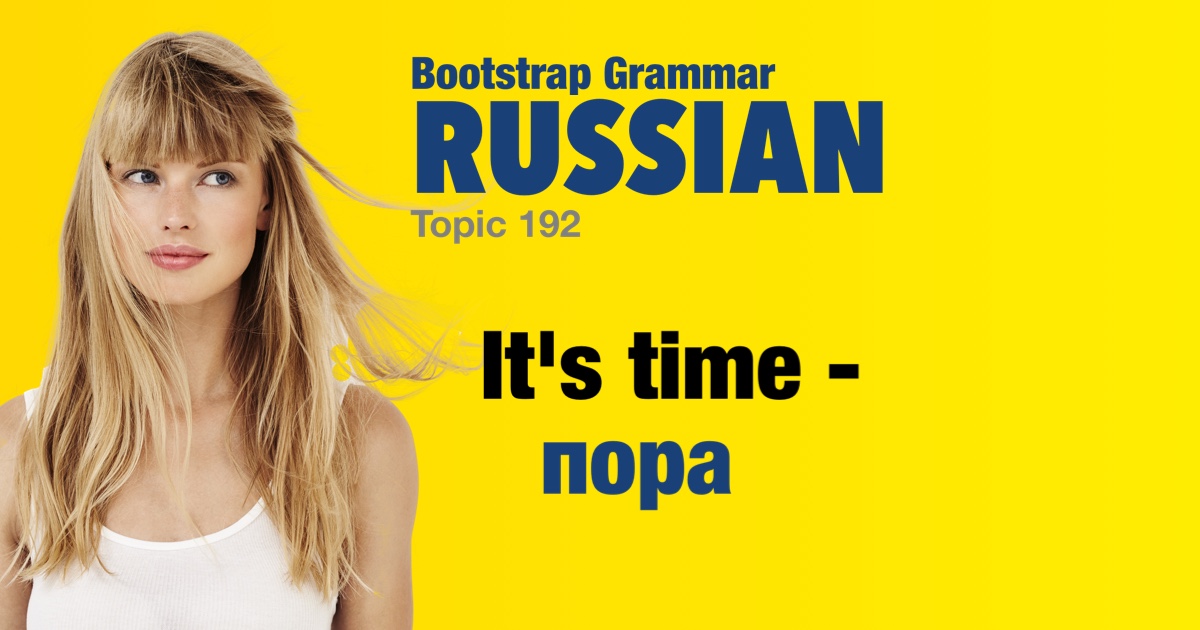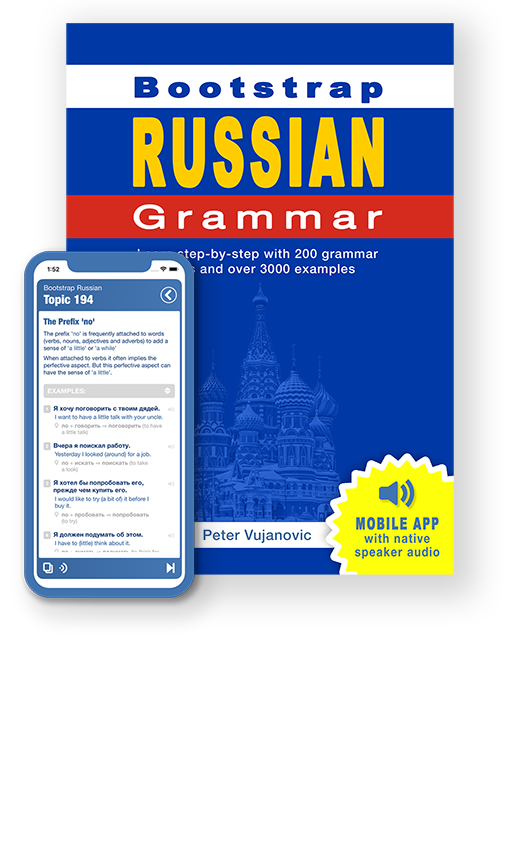Russian grammar - It's time - пора |
|||
|
|||
The word пора means 'time' and is frequently used to mean 'it's time'. пора is a feminine noun. A couple of fixed expressions using пора in its genitive plural пор: • с тех пор means 'since then' • с каких пор? means 'since when?' • с давних пор means 'for a long time' • до сих пор means 'so far' or 'still' |
| Examples: | |
|
Ему пора будет уходить на пенсию.
It will be time for him to retire. |
|
|
К сожалению, нам пора идти.
Unfortunately, it is time for us to go. |
|
|
Что с ним стало с тех пор?
What has become of him since then? |
|
|
Пора вставать!
It's time to get up! |
|
|
Мне уже снова пора идти в школу.
It's already time for me to go to school again. |
|
|
Не пора ли?
Isn't it time? |
|
|
С каких пор вы интересуетесь дзюдо?
Since when have you (formal) been interested in judo? |
|
|
Я не говорил с Сусанной с тех пор.
I (male) haven't spoken to Susan since then. |
|
|
Я видел её в прошлом году, но с тех пор не разговаривал с ней.
I (male) saw her last year, but I haven't spoken to her since. |
|
|
Мне пора домой.
It is time for me to go home. |
|
|
С тех пор много воды утекло.
Since then, a lot of water has flowed away.
|
|
|
И зажили они с тех пор счастливо.
And since then, they have lived happily.
|
|
|
Прошла уже неделя с тех пор, как я вернулся.
It's a week now since I (male) came back. |
|
|
Я старый друг Артёма с давних пор.
I (am) have been Artyom's friend for a long time.
|
|
|
Всё шло хорошо до сих пор.
All has been going well thus far. |
|
|
До сих пор мы не знаем, почему это произошло.
Still, we don't know why it happened. |
|
 |
|


 meaning 'water under the bridge'.
meaning 'water under the bridge'.